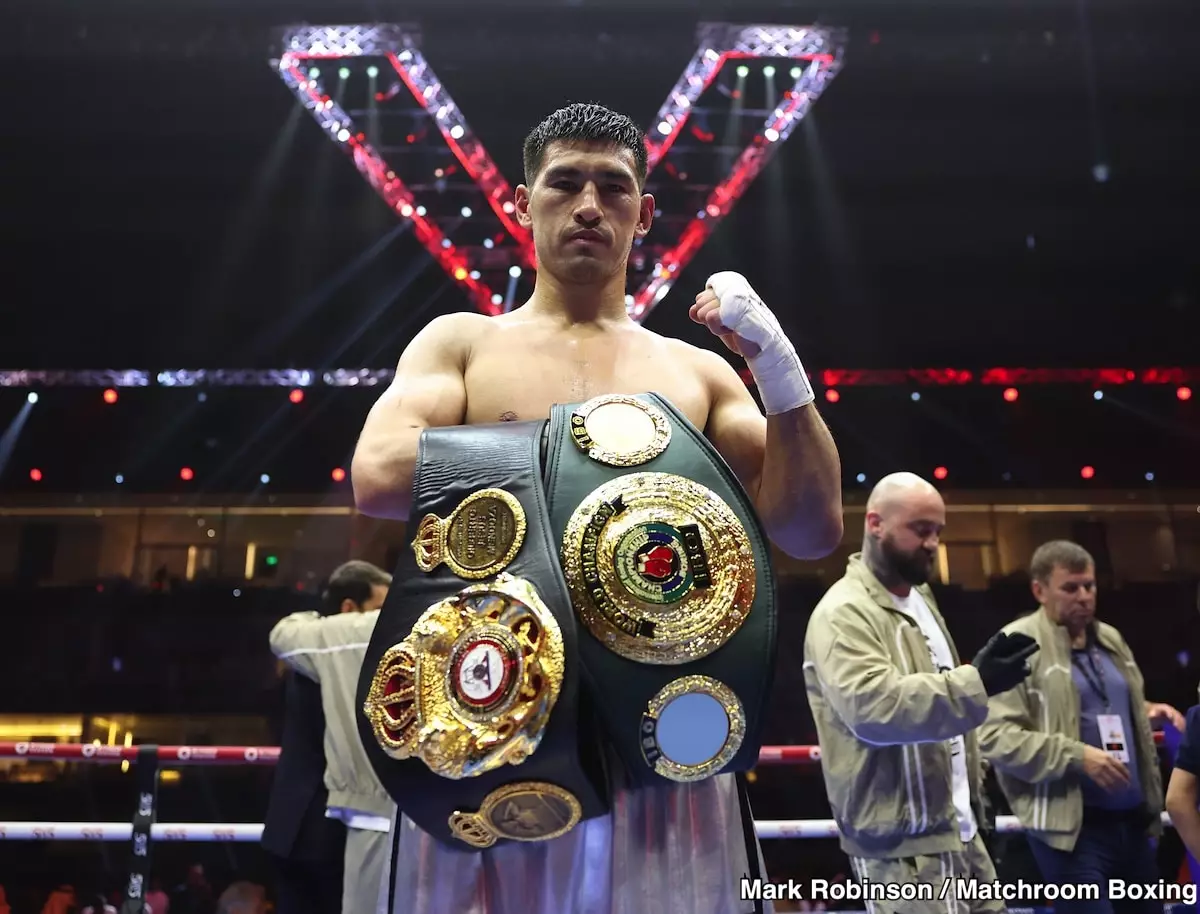In the world of boxing, the lead-up to a significant fight invariably draws attention from experts and enthusiasts alike. One such match that has captured the boxing community’s imagination is the upcoming four-belt light-heavyweight unification bout between Artur Beterbiev and Dmitry Bivol. This clash promises not just a battle for titles but also an intriguing examination of age, experience, and fighting form in the sport. The stakes are high, and opinions regarding the outcome vary widely, especially when seasoned commentators like Teddy Atlas weigh in.
Teddy Atlas, known for his unfiltered analysis and extensive experience—having trained legends like Mike Tyson—has voiced a strong opinion on the upcoming bout. His assessment centers around the implications of age on fighter performance, particularly as it pertains to Beterbiev, who Atlas believes is entering the twilight of his career. At 39, Beterbiev’s age and the cumulative toll of over 300 amateur bouts, coupled with his challenging professional fights, may hinder his performance. Atlas’s claim that “nobody beats Father Time” serves as a sobering reminder that while skill remains paramount, physical decline can dramatically affect even the most powerful fighters.
Dmitry Bivol, on the other hand, stands at a crucial juncture in his own career. At 33 years old, he possesses several advantages: a fresher body, quicker reflexes, and a more consistent fighting schedule. Having fought twice in the last ten months compared to Beterbiev’s limited activity, Bivol appears more in sync with the rigorous demands of elite boxing. With a record of 23 wins, 12 by knockout, Bivol is not only youthful but has also been honing his craft continually, potentially giving him the edge on fight night.
While Bivol’s quick hands and agility may present challenges for Beterbiev, the veteran fighter’s terrifying stopping power remains an unquantifiable variable. History has shown that power can often shift the momentum of a fight in an instant, making Beterbiev a constant threat, regardless of his advancing age. Boxing purity often resides in an athlete’s emotional and mental resolve, qualities that Beterbiev possesses in abundance.
The opinions surrounding this fight are sharply divided. Although Atlas favors Bivol, many other fans and analysts still firmly believe that the experience and raw power of Beterbiev will prevail. The debate demonstrates boxing’s intrinsic unpredictability: age and experience clash with youth and activity, a paradox that invites speculation and debate.
Ultimately, as Beterbiev and Bivol prepare to step into the ring, the question lingers: will Beterbiev be able to defy the odds and assert his might one more time, or will Bivol capitalize on a potential decline and seize this golden opportunity? The fight is as much about the fighters’ current abilities as it is about the narratives woven by their respective journeys—filling spectators with anticipation for an unforgettable night in Riyadh.

